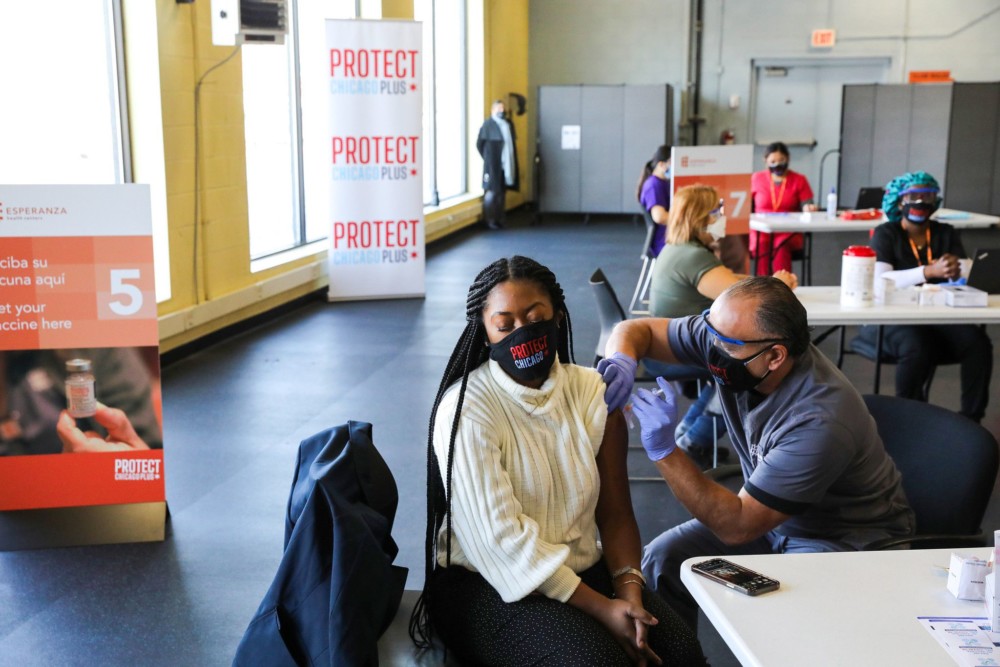Jessica Villagomez
Chicago Tribune
WWR Article Summary (tl;dr) “Jacqueline Gollan, a professor of psychiatry and behavioral sciences at Northwestern University Feinberg School of Medicine, said that “baby steps” to normalcy will help in overcoming anxiety.”
Chicago
As more people across the country become vaccinated against COVID-19, the CDC released guidelines last Monday allowing for fully vaccinated people to gather together without masks. But pulling off the mask and adjusting to life before the pandemic will come with a learning curve, according to experts.
Dr. Aderonke Pederson, an instructor of psychiatry and behavioral sciences at Northwestern University Feinberg School of Medicine, said the one year anniversary of the pandemic has become a landmark for people who have adjusted to a new normal.
“If we were talking one week or two weeks of a change in routine, then reverting back to a semblance of normalcy would be a different point. But we’re talking about a year of change and adjusting, a year of loss on many levels,” she said.
Illinois public health officials reported Thursday that more than 1.3 million residents — just over 10% of the state’s population — have been fully vaccinated against COVID-19.
Hesitation among those who are fully vaccinated stems from learned behaviors as well as trauma associated with those who have been affected by the virus.
“A year in, we’ve been conditioned to say the safe thing to do is to put your mask on and not be close to other people, and now we’re having to readjust and adapt to what will end up being a new normal in the coming months,” she said. “There’s a level of conditioning that happens when we are changing our behavior, when you continue to engage in that particular behavior for a specific time, your body adjusts to that behavior.”
Moving away from dedicated mask wearing will take time, and levels of comfort will vary from person to person, she added. Additionally, snapping back to old routines before the pandemic will come with time, added guidance from the Centers for Disease Control and Prevention and an increase in fully vaccinated people.
“It’s important for us to pace through the next few months and be patient with each other,” she said. “Step by step socialization approaches will be best for reclamation into what will be our new normal.”
For example, people may choose to have one-on-one gatherings before engaging in large social groups.
Jacqueline Gollan, a professor of psychiatry and behavioral sciences at Northwestern University Feinberg School of Medicine, said that “baby steps” to normalcy will help in overcoming anxiety.
“Anxiety decreases when you rely on medical science,” she said. “We are able to make predictions more accurately. It’s like slowly stepping on ice to make sure it is thick enough to hold us. Each of us have our own timelines to normal. Some people will take big steps, others will need to look and see where they can make changes that are safe enough and mitigate their own risk.”
Habitual and small steps will help manage anxiety that can be created by taking larger steps, Gollan added.
“We perceive social scenarios with a lot of apprehension and vigilance,” she said. “Now, once safely vaccinated, we have to reset our expectations about social situations. The challenge however is that our vigilance and built stress systems may not reset as fast as we prefer, but it’s just going to take time to realize that social situations are safer when vaccinated.”
___
Distributed by Tribune Content Agency, LLC.














































































































































































































































































































































































